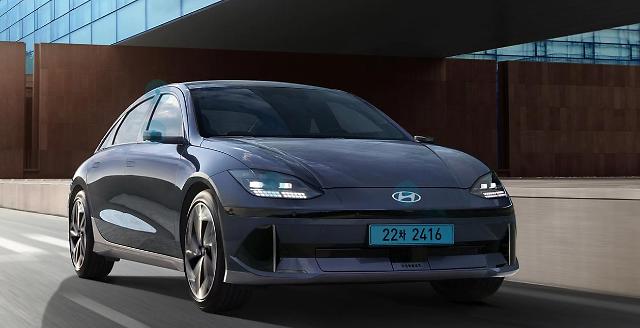
[Courtesy of Hyundai Motor]
The over-the-air (OTA) feature allows carmakers to wirelessly update the features and systems of EVs using commercial mobile communication networks. Because an EV is basically an electronic device, software updates can be delivered to vehicles at any time to enhance their performance. Drivers can also download various OTA updates to customize their cars just like downloading apps for smartphones.
South Korea had maintained a ban on sending out OTA updates because OTA update services were defined as an act of vehicle maintenance, which should only be conducted at authorized vehicle workshops. The United States and European countries allow carmakers to send out OTA updates. According to Verified Market Research, a global market research firm, the global OTA software update service market is projected to reach $8.4 billion by 2027.
The Ministry of Land, Infrastructure, and Transport lifted regulations on OTA updates for EVs after a series of reviews and votes by its regulation reformation committee. Policies will be developed so that OTA updates can be carried out anywhere and anytime.
Through a sandbox regulation exemption program, the transport ministry allowed carmakers to develop OTA services in June 2020. Hyundai Motor won a two-year grace period to develop, test and demonstrated OTA technologies. Tesla adopted OTA technology to its Model S in 2014 and regularly released new updates through a four-week cycle. Wireless updates optimize Tesla EVs' total travel distance, braking distance, and anti-lock braking system (ABS) performances.
Copyright ⓒ Aju Press All rights reserved.




